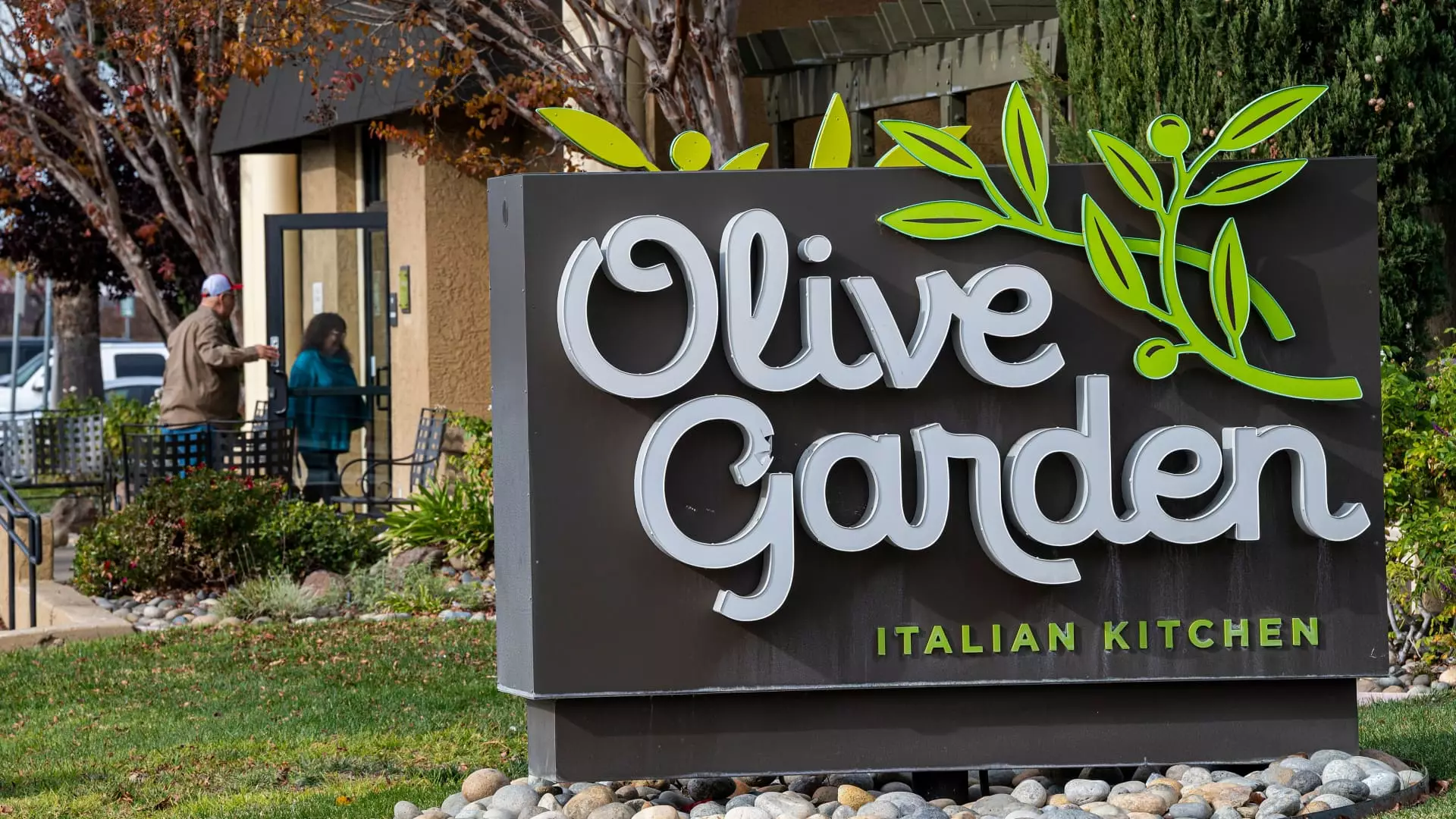Darden Restaurants recently released their fiscal fourth-quarter results, and the report was surprisingly robust, much to the delight of investors eyeing growth potential in the current economic climate. The company reported earnings of $2.98 per share, slightly beating the expected $2.97, and they generated $3.27 billion in revenue, surpassing the forecast of $3.26 billion. This positive financial outcome is noteworthy given the broader economic pressure that has many consumers tightening their belts. A net income of $303.8 million, although marginally less than the previous year, reflects a tenacious approach to business despite economic headwinds.
Furthermore, one cannot overlook the strategic acquisitions that contributed to Darden’s swell in market presence—specifically, the addition of Chuy’s Tex Mex restaurants. While skeptics may question the wisdom of this particular purchase or wonder about the brand’s long-term viability, the numbers tell an impressive story of expansion. Darden’s same-store sales rose by an above-expectation 4.6%, which is clear evidence of strong customer retention and an appealing dining experience.
Consumer Behavior Insights: The Resilience of Casual Dining
In his remarks, CEO Rick Cardenas emphasized a remarkably optimistic trend: despite economic hurdles, diners are keen to keep spending on casual dining experiences. This insight is priceless, considering how discretionary spending typically takes a hit during economic slowdowns. Darden’s strategy to capture market share from fast food and fast casual dining businesses aligns perfectly with this emerging consumer behavior.
The standout performances of the Olive Garden and LongHorn Steakhouse brands, which are pivotal to Darden’s portfolio, further bolster this sentiment. With Olive Garden achieving a staggering 6.9% growth in same-store sales against a backdrop of expected 4.6%, it becomes evident that quality dining experiences continue to resonate with consumers. As dining establishments innovate, they create lasting impressions, and Olive Garden’s reintroduction of the “Buy One Take One” deal exemplifies how timely promotions can reinvigorate sales.
Challenges Ahead: What Lies in Fine Dining?
While the casual dining segment flourishes, it is essential to address the glaring issues within Darden’s fine dining offerings. Brands like Ruth’s Chris Steak House have faced a decline in same-store sales, noted at 3.3%, which starkly contrasts with Darden’s generally positive trajectory. This decline raises concerns regarding consumer preferences shifting toward more casual and affordable dining options.
CFO Raj Vennam’s comments regarding households earning over $150,000 represent a glimmer of hope in this segment, indicating that there are still affluent patrons looking to indulge in fine dining. However, the challenge lies in whether Darden can revitalize its fine dining sector to attract these customers consistently. The threat of permanently losing market share to more accessible dining experiences cannot be overlooked.
Strategic Moves: Navigating Future Opportunities
Darden is navigating complex terrains, illustrated by their decision to close 15 Bahama Breeze restaurants. The announcement relates to the company’s reevaluation of its strategies, particularly around the Bahama Breeze brand, which has been underperforming. Cardenas’s revelation that this brand is not a strategic priority speaks volumes about Darden’s commitment to concentration on growth avenues that show promise and profitability. The company’s potential sale or conversion of Bahama Breeze locations could draw the ire of loyal customers, yet it is often necessary to prune the less fruitful branches of a business to allow the stronger ones to flourish.
The recent $1 billion share repurchase program also signals confidence in Darden’s future. Such a move serves two purposes: it signals to investors that the company believes its shares are undervalued, and it reinforces commitment to returning value to shareholders, an increasingly crucial aspect of business in today’s investment climate.
Stock Climb: Reflecting Investor Confidence
Darden’s shares have risen approximately 19% year-to-date, suggesting that investors are feeling bullish about the long-term outlook. This confidence is not just a product of solid earnings but also a testament to a company willing to adapt and commit to strategic actions that could bolster its market position. Darden’s performance could serve as a case study for other industry players navigating similar economic environments, emphasizing the importance of understanding consumer behavior and being adaptable in a constantly changing landscape.
As Darden continues to tread carefully while exploring new opportunities, the overall sentiment within its operational framework suggests a company determined to stay ahead of the curve, thus securing its place in the casual dining sector well into the future.

